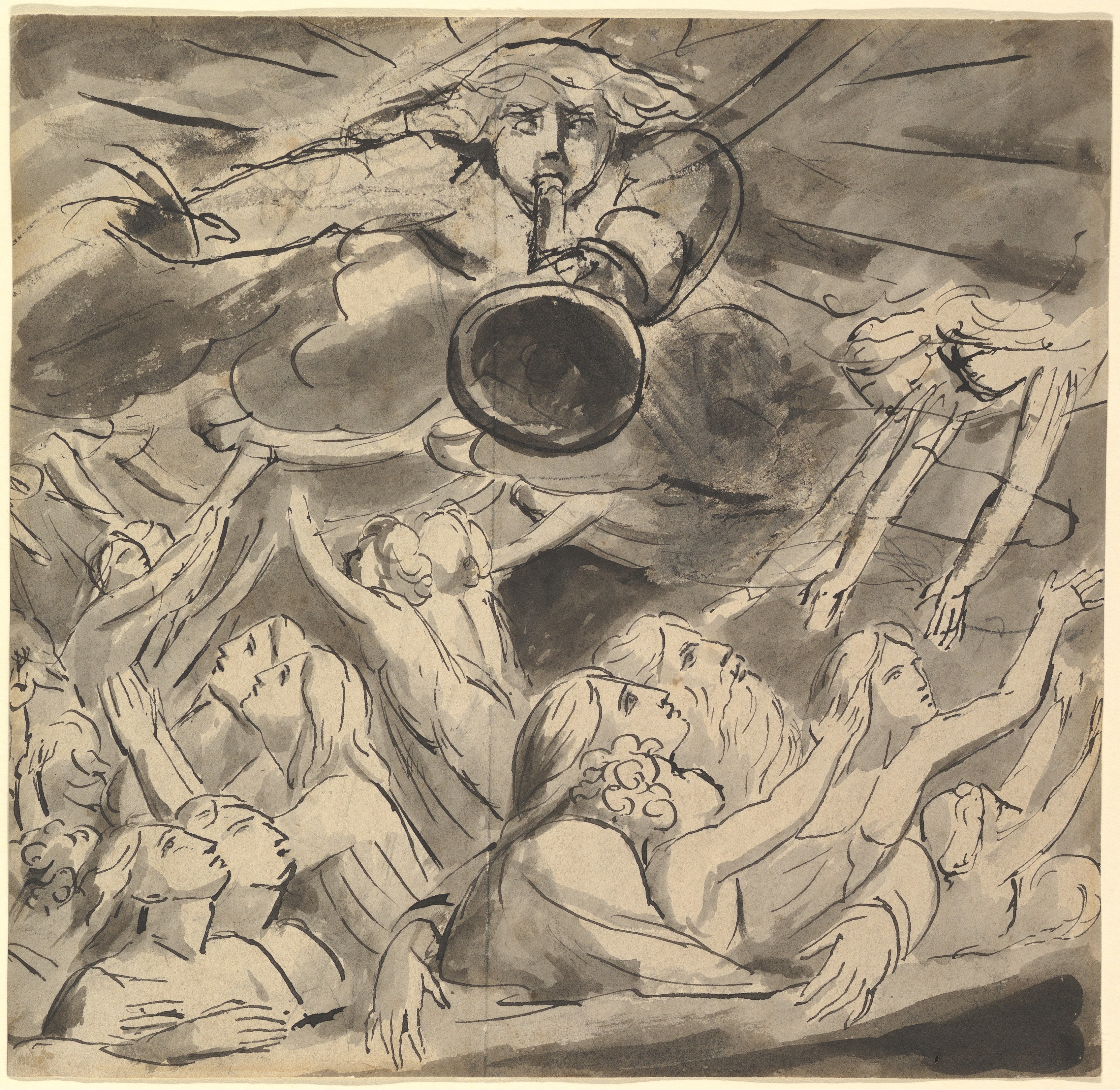The End is the Beginning.
In his chapter, The Aim of Blake's Prophecies, included in Blake's Sublime Allegory, Jerome J McCann, makes this statement:"...as in Blake, these poems are precisely designed to foster ambivalent perspectives...Poems like these are silent forms teasing us into and out of our own thoughts...
Thus, the extreme diversity of opinion among critics of Blake about the meaning of particular poems or passages of poems is perhaps the most eloquent testimony we have to the success of his work. Interpretations of the meanings of Blake's poems are necessarily legion, since his poetry was written to break in upon the centers of individual life and call their meanings into the open. Like Jesus, Blake came to send not peace but a sword. His work is a sign of contention."
These are some observations I want to remember from studying the poem:
1) Spirit and matter are complementary
2) One grows young when the other grows old
3) The one growing young feeds on the one growing old
4) Transition points occur where the one growing young becomes a babe
5) Matter and spirit want to supplant (or suppress) one another
6) The system needs both, when they engage in struggle neither prospers
Here are two passages from Blake which may describe what happens after The Mental Traveller ends:
Four Zoas, Book One, Page 5, (E 302)
"Tharmas groand among his Clouds
Weeping, then bending from his Clouds he stoopd his innocent head
And stretching out his holy hand in the vast Deep sublime
Turnd round the circle of Destiny with tears & bitter sighs
And said. Return O Wanderer when the Day of Clouds is oer
So saying he sunk down into the sea a pale white corse
In torment he sunk down & flowd among her filmy Woof
His Spectre issuing from his feet in flames of fire
In gnawing pain drawn out by her lovd fingers every nerve
She counted. every vein & lacteal threading them among
Her woof of terror. Terrified & drinking tears of woe
Shuddring she wove--nine days & nights Sleepless her food was tears
Wondring she saw her woof begin to animate. & not
As Garments woven subservient to her hands but having a will
Of its own perverse & wayward Enion lovd & wept
Nine days she labourd at her work. & nine dark sleepless nights
But on the tenth trembling morn the Circle of Destiny Complete
Round rolld the Sea Englobing in a watry Globe self balancd"
Or this better may describe what happens next:
Milton, Plate 32 [35], (E 132)
"but Individual Identities never change nor cease:
You cannot go to Eternal Death in that which can never Die.
Satan & Adam are States Created into Twenty-seven Churches
And thou O Milton art a State about to be Created
Called Eternal Annihilation that none but the Living shall
Dare to enter: & they shall enter triumphant over Death
And Hell & the Grave! States that are not, but ah! Seem to be.
Judge then of thy Own Self: thy Eternal Lineaments explore
What is Eternal & what Changeable? & what Annihilable!"
You have been a mental traveller
 |
| Metropolitan Museum The Last Trumpet |
if you have followed the phases of development in The Mental Traveller. You have seen growth and decline, cyclical patterns, increase and decrease. You may have felt hope and futility. Blake put these things in his poem for you to find. You have been given a chance to think about what is permanent and what is transitory. You may have asked if we have the power to interrupt patterns which are fed by invisible forces. The poem is yours to claim as your own and respond to out of your own identity.
Letters, Revd Dr Trusler, (E 702)
"The wisest of the Ancients considerd what is not too Explicit as the fittest for Instruction because it rouzes the faculties to act."
From Blake and the Bible: Biblical Exegesis in the Work of William Blake, by Christopher Rowland:
"Blake wishes to do all he can to resist the idea that there is an authoritative interpretation offered by authoritative interpreters. His texts are there for all to use and for the stimulation of the imagination."
From Blake and the Bible: Biblical Exegesis in the Work of William Blake, by Christopher Rowland:
"Blake wishes to do all he can to resist the idea that there is an authoritative interpretation offered by authoritative interpreters. His texts are there for all to use and for the stimulation of the imagination."
No comments:
Post a Comment